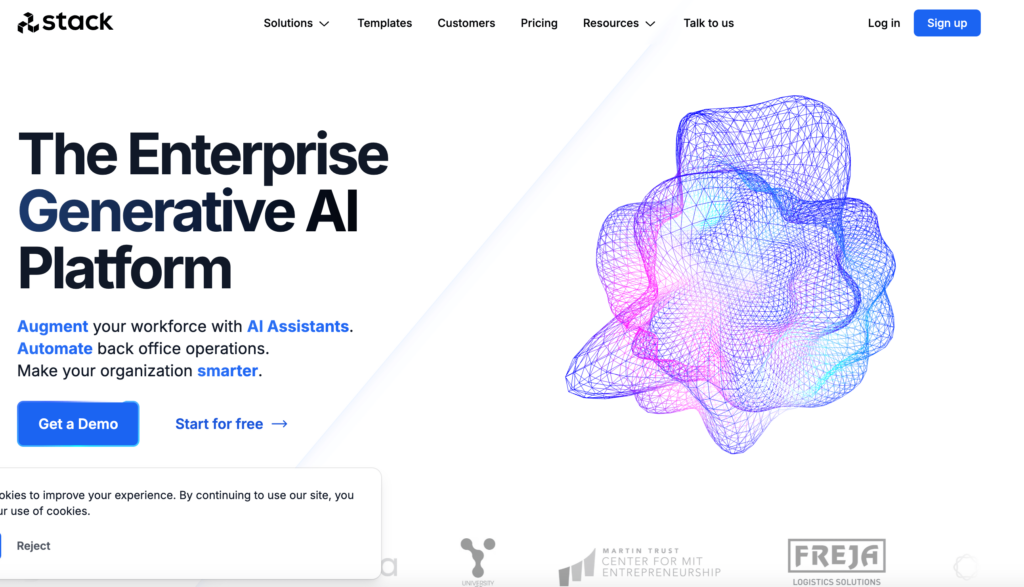Introduction: A New Era for AI in Business
The landscape of AI is shifting rapidly, with autonomous agents leading the charge. As businesses strive to stay competitive, integrating AI into their operations is no longer a luxury but a necessity. AI is not just a buzzword; it’s a powerful tool capable of transforming how businesses operate, making processes more efficient, and significantly reducing costs. The focus now is on harnessing AI to achieve real-world results, and that’s where autonomous AI agents come into play. These agents are not just an extension of existing technology; they represent a fundamental shift in how tasks are delegated and executed, providing businesses with unprecedented leverage.
Leveraging AI Agents for Business Efficiency
AI agents provide a form of leverage that can revolutionize how businesses function, akin to adding new team members but with significantly lower costs. Through our journey, we’ve explored various AI applications, from chatbots to AI-powered SaaS solutions, aiming to stay ahead of the curve in a rapidly evolving tech landscape. Now more than ever, businesses can benefit from embedding AI agents into their operations. These agents are designed to handle tasks that typically require human intervention, thus freeing up valuable time and resources for other strategic initiatives.
Defining AI Agents: Beyond Traditional Automation
AI agents are advanced systems powered by large language models (LLMs) like ChatGPT but with enhanced capabilities. Unlike traditional LLMs that rely on human input for executing tasks, AI agents can autonomously perform actions based on their programmed reasoning and decision-making processes. This autonomy marks a significant advancement in AI, enabling these agents to not only think like humans but act like them as well. Various platforms have emerged to support the creation of these agents, offering tools for both technical and non-technical users.
Exploring the Leading AI Agent Platforms
In the burgeoning field of AI agents, several platforms have stood out, each with its own strengths and challenges. Platforms like Crew AI and Microsoft’s AutoGen have garnered attention, though they often require coding expertise, posing a barrier to entry for many.
Zapier Central aims to democratize access by offering a user-friendly interface, yet it still lacks the intuitive design needed to fully capitalize on AI agents’ potential. Meanwhile, platforms like Voiceflow and Stack AI, originally designed for chatbots, are evolving to support more complex AI agents. Among these, Inate has emerged as our preferred platform, striking the right balance between ease of use, cost, and advanced features.

The Critical Role of Data in AI Agent Success
In deploying AI agents, one of the most critical elements is data. The quality and relevance of data directly impact the performance of AI agents, making it essential to keep data streams current and well-organized. This parallels the training process for new employees, where continuous learning and up-to-date information are vital. We rely on vector databases, with Pinecone being our go-to solution, to ensure that our AI agents have access to accurate and timely data, enabling them to perform their tasks effectively and consistently.
Implementing Continuous Data Collection and RAG
To maintain the effectiveness of AI agents, it’s crucial to implement systems for continuous data collection. This ensures that the information feeding into the AI agents remains relevant and up-to-date, which is where Retrieval Augmented Generation (RAG) comes into play. RAG enables AI agents to retrieve the most relevant information from a database in real-time, ensuring they are always working with the latest data. This approach not only keeps the agents functioning optimally but also reduces the need for manual updates, making the system more efficient and scalable.
The Evolution of Prompt Engineering: A Vital Component
Prompt engineering has emerged as a critical factor in the success of AI agents. While initially undervalued, it has become clear that the quality of prompts directly influences the effectiveness of AI outputs. Precise and well-crafted prompts guide AI agents, enabling them to perform tasks with accuracy and reliability. We’ve developed specific templates to ensure that prompts are clear, objectives are well-defined, and the AI agents have all the necessary tools to accomplish their tasks. This meticulous approach to prompt engineering is key to unlocking the full potential of AI agents.
Best Practices for Building and Managing AI Agents
Building effective AI agents requires a strategic approach, much like managing human employees. It’s essential to provide AI agents with the right tools, data access, and clear instructions to ensure they operate efficiently. Inate’s platform allows for the creation of complex workflows and custom tools that empower AI agents to perform a wide range of tasks autonomously. By thinking of AI agents as virtual team members, businesses can integrate these systems more seamlessly into their existing operations, maximizing their utility and impact.
AI Agents in Action: Streamlining Lead Generation
One of the most impactful applications of AI agents is in lead generation. Many businesses, especially smaller ones, struggle with managing leads effectively due to limited resources. AI agents can automate critical steps in the sales process, from qualifying leads to scheduling appointments and nurturing relationships. By integrating AI agents into the sales funnel, businesses can unlock new revenue streams and improve conversion rates without the need for significant additional investment, making AI a powerful tool for growth.
Conclusion: Embracing the Future of AI in Business
The integration of AI agents into business operations is not just a trend but a strategic necessity. These agents offer unprecedented opportunities to reduce costs, increase efficiency, and scale operations. As AI continues to advance, its role in business will become increasingly central, making it crucial for companies to start integrating these technologies into their workflows. For those interested in exploring how AI agents can benefit their business, additional resources are available to guide you through the process, offering insights and practical examples to help you get started.





